If you haven't figured it out yet, I have rather eclectic interests. If I were trying to flatter myself, I would say I am a Renaissance man, but the truth is that I have the equivalent of intellectual ADD.
Rather than developing discipline and becoming especially good at one thing, I flit from topic to topic, becoming what I like to joke of as an "80% expert" on a lot of topics. It's what made me an especially good researcher and speech writer for political candidates--I could research a topic and brief somebody on it very quickly, ensuring that the person could speak intelligently enough about a topic about which they knew little a day ago.
In politics, that situation comes up all the time, especially when you are running for office and get peppered with unexpected questions driven by unexpected events.
It's also what makes me rather unsuited for academia--I get bored with a topic once it becomes clear enough for me to feel I have a basic grasp of it. I also tend to become suspicious when people become "experts" because expert knowledge tends to be siloed knowledge--you often miss the forest for the trees or get too tied to a paradigm.
Well, one of my many interests is physics, and I have long thought that the discipline of Physics is caught in a cul-de-sac and that a new paradigm is necessary to explain significant lacunae in our understanding of how seemingly contradictory data fit together.
The Dark Energy/Dark Matter problem is one of the largest problems, of course. Our observations of the universe and understanding of how it should work suggest that the vast majority of the mass in the universe is not observable. The most obvious example of this is that the rotation of galaxies is inconsistent with the amount of mass we observe. The rate of expansion of the universe is similarly mysterious--gravity is not doing what our model of the universe says it should be.
Dark energy/dark matter is the proposed solution, but there is no solution at all. They are just an "X" factor to make the equations work. We have no idea what dark matter is; we simply infer it from how the universe works as we observe it.
The obvious solution to this is we still don't know how the universe works at galactic and larger scales, and our models are wrong or incomplete.
The way academic science works in the modern world makes exploring this possibility extremely difficult for a variety of reasons, and one of the scientists I follow explains why academic science appears to be in a rut:
What Sabine Hossenfelder describes here is a phenomenon that is very real, and we have a real-world example of this fact during the COVID-19 pandemic.
Modern science is, much more than at any time in history, a highly collaborative process driven by bureaucracies, funding structures, institutions, multi-billion dollar projects, and frankly tyrannical bureaucrats who are often mediocre scientists but excellent players in the political games that now dominate academia.
Before World War II, scientists tended to be lone wolves, and the best scientists were able to break new ground precisely because they didn't fit well into a highly structured environment. Einstein did his most groundbreaking work outside of academia--he worked in a Patent Office!--and the scientists we tend to revere were extraordinary lone wolves who tended to be outcasts until proven to be geniuses.
I am in no position to know if Sabine could have been a groundbreaking genius or just a decent scientist, but I can say that her description of academia as a place where you succeed by being a timid worker bee or a highly competent political bureaucrat is absolutely accurate.
Grants drive employment in science, and grant givers direct money to programs that appeal to them--with which they tend to agree. The bigger the grants one gets the more powerful one becomes, and you get big grants by being mainstream enough. You can push boundaries a bit, but not too much.
"Publish or perish" incentives also tend to encourage junk science, especially in psychology and biology. I have written before about the horrible state of nutrition science, and Vinay Prasad did a great video on why it is basically junk.
During the pandemic, you got to see in real-time how the funders of research can corrupt it. Dr. Fauci essentially coerced scientists to produce the shoddy and even fraudulent "Proximal Origins" paper on the virus, in which scientists published a paper that their private correspondence shows they did not believe to be correct.
They lied, in other words, because Fauci controlled their research budgets, and in return for lying millions of dollars flowed to their labs.
The incentives are all wrong, and as a result innovation and productivity in science has slowed to a crawl. I wrote about this last year and it is worth your time to go back and take a look.
Let me quote from a study on disruptive science:
Despite exponential growth in recent decades of research papers and patents, a new University of Minnesota study published in Nature suggests science and technology are becoming less disruptive.
Carlson School of Management Associate Professor Russell Funk, doctoral student Michael Park and Professor Erin Leahey of the University of Arizona analyzed data from 45 million papers and 3.9 million patents across six decades for their research. They used a “disruptiveness score,” which is based on the patterns of citations five years after publication, to assess the extent to which papers and patents push ideas toward new trajectories. They determined:
- Papers and patents are less likely to be disruptive, or make previous findings obsolete and push science and technology in a new direction, such as the discovery of the DNA double helix structure.
- Instead, papers and patents are more likely to be consolidating, or further developing previous work — e.g., the Kohn-Sham equation which improved upon existing equations about electron particles.
- Scientists and inventors are increasingly using narrower slices of knowledge to develop their new work.
- This pattern holds across all major fields of science, including technology, medicine and social sciences.
Given the grant-driven nature of science and its increasing dependence on collaborative work, this shouldn't surprise us. If you are part of a large team, you can't have everybody going off in different directions, and if you need to get money from senior scientists in charge of grant proposals, you can't be trying to prove them to be fools.
Given where science is today, it can't be conducted by people like me; you need people who can delve deeply and have extraordinary patience. On the other hand, the current model is no longer working. We are spending extraordinary amounts of money to make relatively little progress or even going down rabbit holes that people with money want others to explore.
One of my "bucket list" desires is to live to see the revolution in physics that I suspect is coming. It's impossible to know when it will come, but I fear that the institutional imperatives of academic science dictate that it will take longer than it ought to.
I guess that means I had better live for a long time! Biologists, get on that!





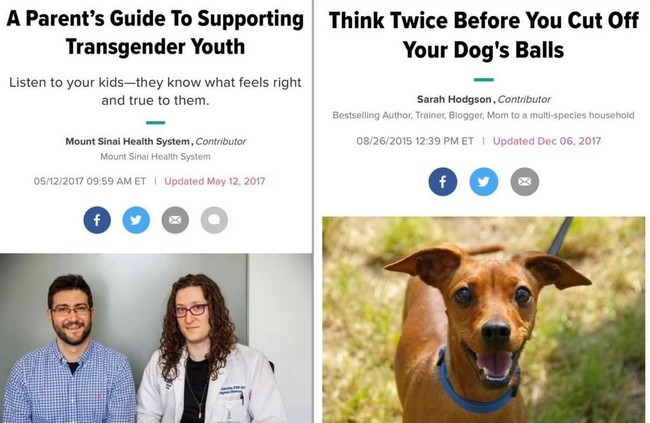



Use Code SMILES to get that nifty and thrifty 50% off




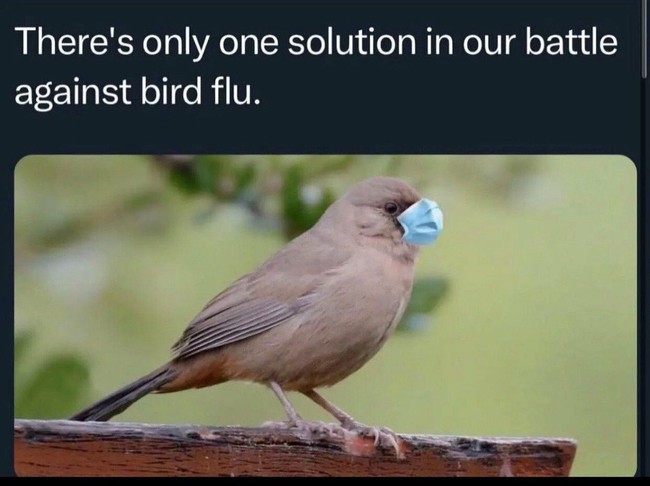



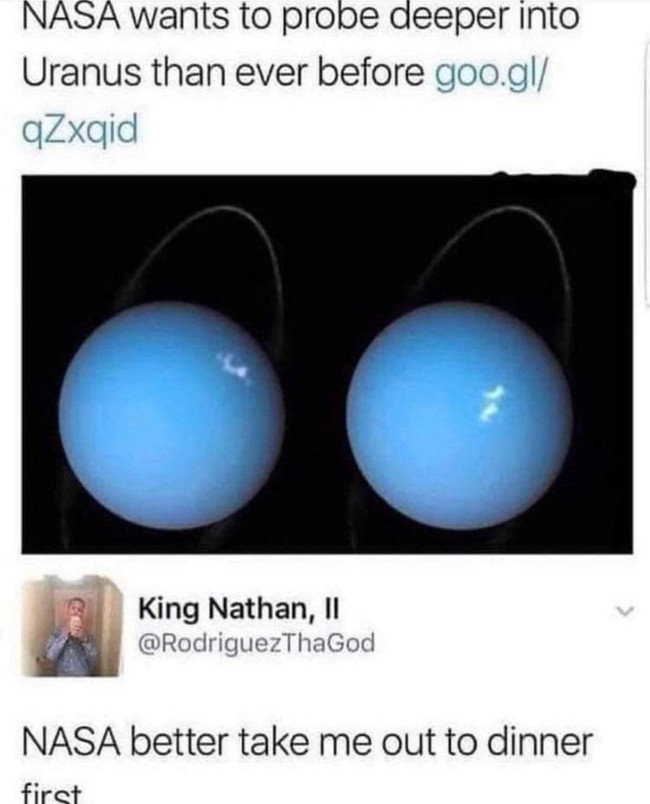







Use Code SMILES to get that nifty and thrifty 50% off







Another AI Chicago in Ice Age

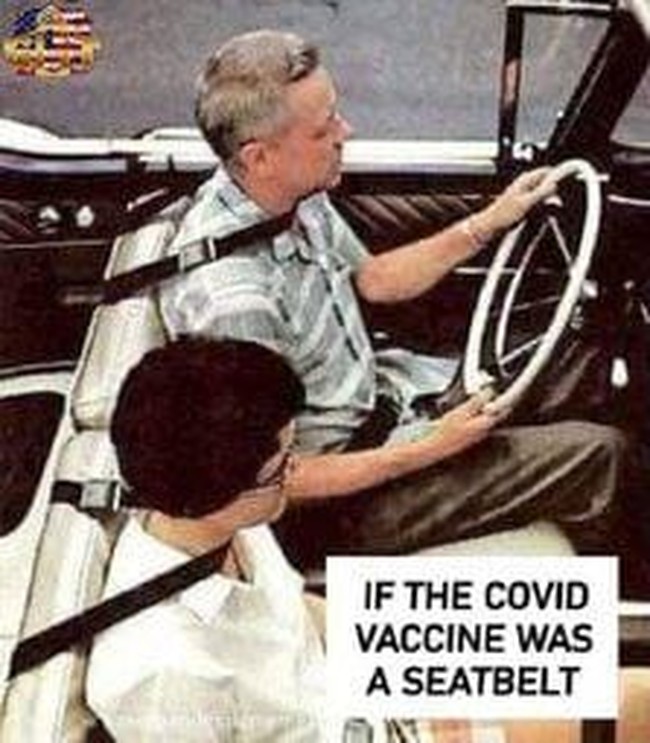




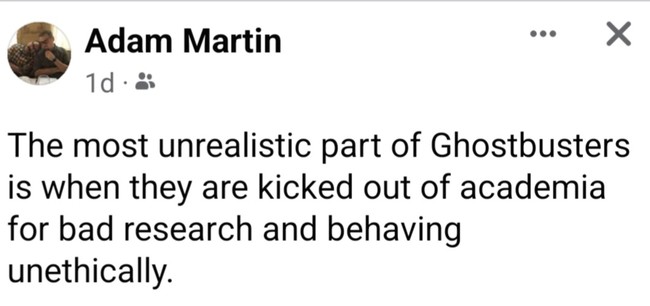









Use Code SMILES to get that nifty and thrifty 50% off
Best of the Babylon Bee
Father’s Day Updated To 'Toxic Masculinity Awareness Day' https://t.co/1g92qOmqTv pic.twitter.com/4EvzTYFIW2
— The Babylon Bee (@TheBabylonBee) June 16, 2024
What Dads Get for Father's Day vs. What They Actually Want https://t.co/dwtgGpj8TR pic.twitter.com/8UPUihWfPu
— The Babylon Bee (@TheBabylonBee) June 16, 2024
Merrick Garland Threatens To Arrest Anyone Who Says His DOJ Is Corrupt https://t.co/jRH81jgxU9 pic.twitter.com/keqSVD836k
— The Babylon Bee (@TheBabylonBee) June 15, 2024
All Bump Stocks Lost In Boating Accidents Back In 2017 Miraculously Wash Up On Shore https://t.co/c4LDQLEHnV pic.twitter.com/XhIVWi7XSj
— The Babylon Bee (@TheBabylonBee) June 15, 2024
G7 Officially Changed To G6 After Biden Wanders Off Again https://t.co/AX3mMDxahF pic.twitter.com/OeS8DW386X
— The Babylon Bee (@TheBabylonBee) June 15, 2024
President Pretending To Be Catholic Meets Pope Pretending To Be Catholic https://t.co/cb65K1WtiZ pic.twitter.com/7gyyUQKuf0
— The Babylon Bee (@TheBabylonBee) June 15, 2024
Ilhan Omar Calls For Day Of Mourning Over Hostages Rescued https://t.co/CI2SRW79gF pic.twitter.com/FTlrDy55La
— The Babylon Bee (@TheBabylonBee) June 15, 2024
Star Wars Fans Upset ‘The Acolyte’ Full Of Woke Stuff Instead Of Siblings Kissing https://t.co/vG84TGGKPa pic.twitter.com/WEW15nUiY6
— The Babylon Bee (@TheBabylonBee) June 15, 2024
President Biden Says He Is Still Proud Of His Son For Getting Away With Everything Else He Did https://t.co/LYeyq2UHv3 pic.twitter.com/FPq9gNF0NJ
— The Babylon Bee (@TheBabylonBee) June 15, 2024
Chinese Restaurant Owner Retiring To Spend Less Time With Family https://t.co/ZTKJz4qYhx pic.twitter.com/SUWLw8ivAJ
— The Babylon Bee (@TheBabylonBee) June 15, 2024
God Confirms Heaven Will Bring All Nations, Tribes, And Tongues Together In Hatred Of The New York Yankees https://t.co/PFRCqIumAd pic.twitter.com/R66CZYyA1N
— The Babylon Bee (@TheBabylonBee) June 14, 2024
Christian Dad Assures Children The Ghost In The Closet Isn't Real But It Might Be A Demon https://t.co/EtFwYEQp6x pic.twitter.com/5YBYF6M6qm
— The Babylon Bee (@TheBabylonBee) June 14, 2024
Biden Disappointed After Huge Scoop Of Vanilla Ice Cream Turns Out To Be Pope Francis https://t.co/eTNGEe0MHx pic.twitter.com/5bLPMEVdjY
— The Babylon Bee (@TheBabylonBee) June 14, 2024
Authorities Warn Of Con Artist Scamming Dementia Patients Out Of Billions Of Dollars https://t.co/cQ7WRkLmCt pic.twitter.com/MKlzb1los1
— The Babylon Bee (@TheBabylonBee) June 14, 2024
Aides Quickly Grab Biden’s Arm As He Tries To Follow The Light Again https://t.co/X6g9a9Z5n5 pic.twitter.com/dmXS6gwYr7
— The Babylon Bee (@TheBabylonBee) June 14, 2024
Pfizer Assures Public They Are Preparing For Next Pandemic By Developing An All-New Ineffective Vaccine With Fatal Side Effects https://t.co/C2ZMtKfIYj pic.twitter.com/BarW0I85V3
— The Babylon Bee (@TheBabylonBee) June 13, 2024
As Russian Warships Threaten Florida Coast, Biden Responds Decisively To Ensure Safety Of All Pride Murals https://t.co/DNB8rp5ULQ pic.twitter.com/DkQJmeV0rM
— The Babylon Bee (@TheBabylonBee) June 13, 2024
Tensions Rise As G7 Attendees Accidentally Refer To Justin Trudeau Using Masculine Pronouns https://t.co/r1VfgQDcgr pic.twitter.com/jhk74fU6DF
— The Babylon Bee (@TheBabylonBee) June 13, 2024
Disqualified Lia Thomas Asks If He Can Still Just Hang Out Naked In The Olympic Women’s Locker Rooms https://t.co/RvLQKmg0Ae pic.twitter.com/X6NO9FihAb
— The Babylon Bee (@TheBabylonBee) June 13, 2024

Use Code SMILES to get that nifty and thrifty 50% off
Best of the Rest:
Awwwww his friends sold him!
— Figen (@TheFigen_) June 12, 2024
These dogs have no character! ❤️😂😂 pic.twitter.com/HsDdkWDAja
An unexpected move from the match referee...♟️😂 pic.twitter.com/dUFL7nIyqh
— 𝕐o̴g̴ (@Yoda4ever) June 12, 2024
Monkey reacts to magic trick pic.twitter.com/UoLFPEUA3X
— Nature is Amazing ☘️ (@AMAZlNGNATURE) June 11, 2024
Dog meets a puppy for the first time..🐕🐾😍 pic.twitter.com/DIDh13VeHY
— 𝕐o̴g̴ (@Yoda4ever) June 9, 2024
“I did it!” 😊 pic.twitter.com/bNldc6o3T9
— Buitengebieden (@buitengebieden) June 9, 2024
Catching the rainbow.. 😅 pic.twitter.com/auAy9iUQvp
— Buitengebieden (@buitengebieden) June 16, 2024
Dog tucking in the kittens.. 😊 pic.twitter.com/C2x2Sfq0FP
— Buitengebieden (@buitengebieden) June 16, 2024








Join the conversation as a VIP Member